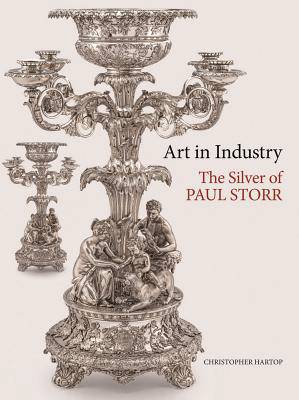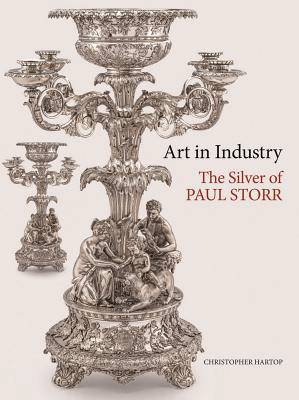
Door een staking bij bpost kan je online bestelling op dit moment iets langer onderweg zijn dan voorzien. Dringend iets nodig? Onze winkels ontvangen jou met open armen!
- Afhalen na 1 uur in een winkel met voorraad
- Gratis thuislevering in België vanaf € 30
- Ruim aanbod met 7 miljoen producten
Door een staking bij bpost kan je online bestelling op dit moment iets langer onderweg zijn dan voorzien. Dringend iets nodig? Onze winkels ontvangen jou met open armen!
- Afhalen na 1 uur in een winkel met voorraad
- Gratis thuislevering in België vanaf € 30
- Ruim aanbod met 7 miljoen producten
Zoeken
€ 114,45
+ 228 punten
Omschrijving
The first book on Paul Storr for more than fifty yearsBicentenary of the Battle of Waterloo, so Regency period in the newsPaul Storr (1770-1844), acknowledged to be the greatest silversmith of the Regency period, holds a special place in the history of English silver. The workshops he directed, first for the Royal Goldsmiths Rundell, Bridge & Rundell, and later on his own account, wrought some of the greatest silver of the first half of the nineteenth century. The designs were provided by well-known Regency names such as John Flaxman, William Theed, Edward Hodges Baily, and Thomas Stothard. Storr numbered among his clients not only British royalty and aristocracy, but continental European nobility and prominent Americans. The year 2015 marks the bicentennial of the Battle of Waterloo, which saw Britain emerge as the dominant power in Europe. Military campaigns on land and sea, a more international outlook, newly fashionable foods, changes in table settings, and above all the creation of great wealth for Britain resulted in a revolution in silverware.
Specificaties
Betrokkenen
- Auteur(s):
- Uitgeverij:
Inhoud
- Aantal bladzijden:
- 168
- Taal:
- Engels
Eigenschappen
- Productcode (EAN):
- 9781898565147
- Verschijningsdatum:
- 20/11/2015
- Uitvoering:
- Paperback
- Formaat:
- Trade paperback (VS)
- Afmetingen:
- 213 mm x 295 mm
- Gewicht:
- 975 g

Alleen bij Standaard Boekhandel
+ 228 punten op je klantenkaart van Standaard Boekhandel
Beoordelingen
We publiceren alleen reviews die voldoen aan de voorwaarden voor reviews. Bekijk onze voorwaarden voor reviews.











